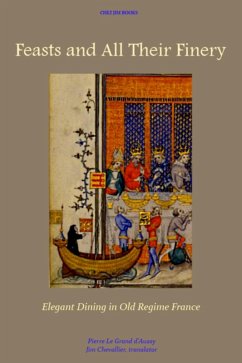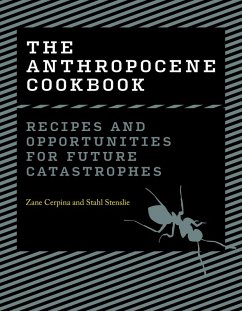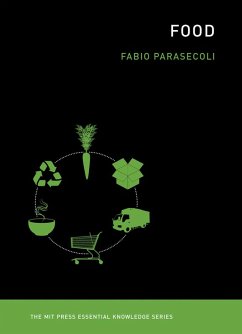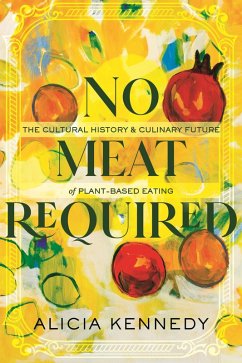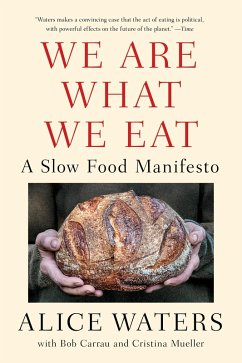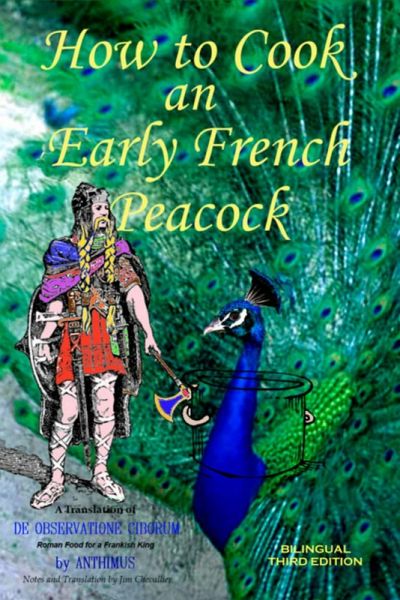
How to Cook an Early French Peacock: De Observatione Ciborum - Roman Food for a Frankish King (Bilingual Third Edition) (eBook, ePUB)

PAYBACK Punkte
0 °P sammeln!
Is Anthimus' work "the oldest European medieval cookbook"? By many measures, even if it is more a medical work, or, in modern terms, a book on nutrition, than a cookbook per se. No actual cookbook has survived from the first centuries of France, when the Merovingian Franks invaded Gaul and founded what become known as "The Kingdom of the Franks" - Francia. But in the sixth century an Ostrogoth king sent a Byzantine physician to one of the Frankish courts where the food, being for the rich, was essentially Roman. Anthimus, the physician/ambassador, wrote his host a long letter on diet - De Obse...
Is Anthimus' work "the oldest European medieval cookbook"? By many measures, even if it is more a medical work, or, in modern terms, a book on nutrition, than a cookbook per se. No actual cookbook has survived from the first centuries of France, when the Merovingian Franks invaded Gaul and founded what become known as "The Kingdom of the Franks" - Francia. But in the sixth century an Ostrogoth king sent a Byzantine physician to one of the Frankish courts where the food, being for the rich, was essentially Roman. Anthimus, the physician/ambassador, wrote his host a long letter on diet - De Observatione Ciborum - intended mainly for medical purposes (and so a "dietetic") but outlining in a number of cases how to prepare the food in question. Most of the food Anthimus mentions shows Roman influence, but he also mentions specific Byzantine and Frankish specialties. Though the most well-known medieval food remains that of Taillevent and the fourteenth century, this too was medieval food, but from a far earlier century, when the Roman influence was still strong. This work has been called "the first French book of cookery". This edition of this very rare work is BILINGUAL and now includes additional notes on Anthimus' work as both a Roman and a medieval cookbook, as well as a survey of actual Frankish food. The work also provides an overview of the cuisine the work addresses, an introduction to the very concept of a "dietetic" and comparisons of others with Anthimus' own, a list of Anthimus' remedies for specific ailments and an overview of his ideas and approach. Would you like to prepare your own Frankish-Roman meal? The translation itself is followed by notes and a number of modern recipes ("redactions") based on Anthimus' instructions. These range from the very simple - stewed quinces - to the complex - beaten egg whites steamed in various liquids and beef stewed in vinegar and honey with spices. Suggested courses are even outlined for both modern and Roman-style meals. The information Anthimus preserved is extraordinarily rare and his wonderfully informative work should equally interest historical cooks, medievalists and students of Roman food. This translation, now in a third edition, makes it readily available to a wider audience.
Dieser Download kann aus rechtlichen Gründen nur mit Rechnungsadresse in A, B, CY, CZ, D, DK, EW, E, FIN, F, GR, H, IRL, I, LT, L, LR, M, NL, PL, P, R, S, SLO, SK ausgeliefert werden.




